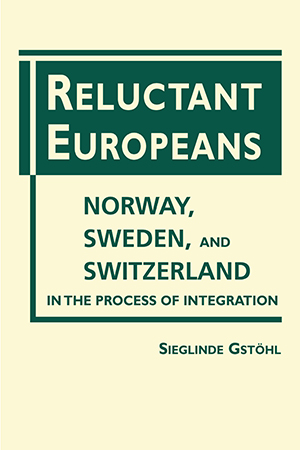Analyzing some thirty policy decisions across three countries and five decades, Sieglinde Gstöhl considers why some countries continue to be "reluctant Europeans."
Typically, small and highly industrialized states are expected to be more likely to integrate than are larger or less advanced countries. Why, then, did Norway, Sweden, and Switzerland choose for so long not to join the European Communities? And what accounts today for their differing levels of integration? Gstöhl argues that economic interests alone do not sufficiently explain attitudes toward integration, but rather coexist with—and are often dominated by—domestic political and geohistorical constraints. The lure of improved access to EU markets may fade in the shadow of domestic institutions and societal cleavages, foreign policy traditions, and experiences of foreign rule that touch on feelings of national identity. Thoroughly addressing these issues, Reluctant Europeans offers key insights into the problems associated with deepening integration in an enlarging European Union.
Sieglinde Gstöhl is professor of EU International Relations and Diplomacy Studies at the College of Europe.
"This book deserves to be widely read, not only by those with an interest in one of the three countries, but more generally by all students of European integration."—Paolo Dardanelli, Journal of Common Market Studies
"This study greatly adds to our understanding of the integration process. Gstöhl's methodological approach should be encouraged and emulated within the field."—Domenic Maffei, EUSA Review
"An important contribution to the study of European integration.... In addition...it adds to our knowledge of small states in international relations...[and] provides an unusally balanced account of the relative influence of material and ideational factors over national integration policy.... The book is highly recommended to readers with a special interest in the EU policies of Norway, Sweden and Switzerland as well as to those with a general interest in the national integration policy of small states."—Anders Wivel, International Affairs






